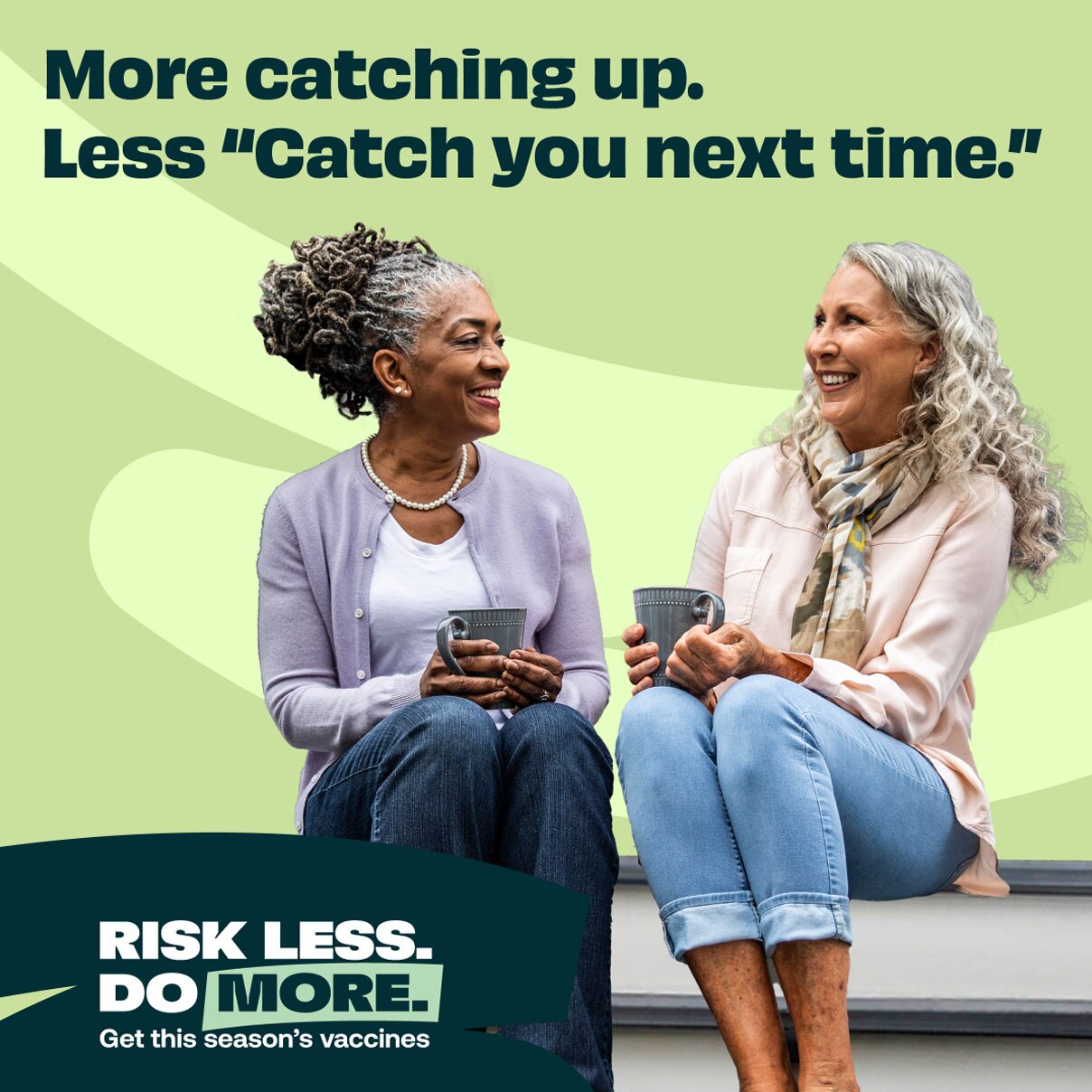AARP Hearing Center

by Priya Helweg, Acting Regional Director and Executive Officer, U.S. Department of Health and Human Services, Region 10
Cooler weather makes for a nice change from the summer heat—but fall is also the time when more people in Washington get sick from flu, COVID-19, and RSV.
While these viruses often cause nothing more than a runny nose or sore throat, they can also cause severe illness for many people, especially for high-risk individuals. During last year’s respiratory virus season, these viruses caused 800,000 people to be hospitalized in the United States.
Prevention is the best way to protect yourself from getting very sick from respiratory viruses. Masks and handwashing play a key role in protecting against these viruses, but vaccines give the best protection. Vaccines boost the body’s natural defenses against germs that can make you sick. Vaccines help keep symptoms mild, keep people out of the hospital, and save lives.

Although vaccines are our best protection, many people do not know about their benefits.
The most important thing vaccines do is help keep flu, COVID-19, and RSV symptoms mild and keep people out of the hospital if they catch one of these viruses. And they work. According to the Centers for Disease Control and Prevention (CDC), 95% of adults hospitalized last year for COVID-19 had no record of getting the latest vaccine.
The U.S. Department of Health and Human Services (HHS) has launched a public education campaign called Risk Less. Do More. The campaign aims to give people the information they need to help make decisions about vaccination against flu, COVID-19, and RSV.
HHS is committed to protecting the health and well-being of everyone living in the United States by sharing science-based information to answer their questions and help with their decision-making.
In my role as the Acting Regional Director in Region 10, which includes Washington State, I am honored to work with state and local groups to support this effort.
The CDC recommends that everyone 6 months and older get an updated flu and COVID-19 vaccine. If you are age 60 or older, ask your doctor if the RSV vaccine is right for you. If you’re pregnant, getting vaccinated for flu and COVID-19 can protect both you and your baby from serious illness. An RSV vaccine during pregnancy also helps protect newborns from RSV, which is the number one cause of infant hospitalization in the United States.
You can get this year’s flu shot and updated COVID-19 vaccine now from your doctor or at a local pharmacy. The RSV vaccine is also available for those who are eligible.
Now is the time to get vaccinated, especially if you want to be protected over the holidays. Vaccines are the best way to protect ourselves for a healthier fall and winter.
Flu, COVID-19, and RSV vaccines help people risk less severe illness and do more of what they enjoy.































































